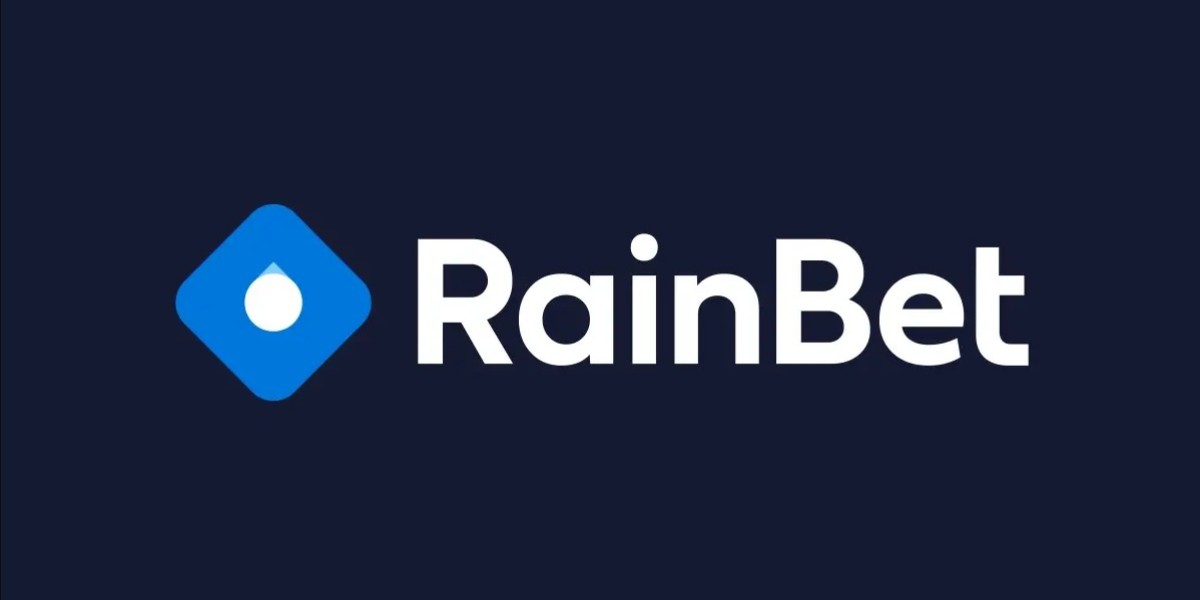Market Overview
Quantum computing is revolutionizing various industries, and one of its most promising applications is in the field of drug discovery. Quantum computers are able to process vast amounts of information simultaneously, allowing for much more efficient simulations and calculations than classical computers. This capability is particularly valuable in the pharmaceutical industry, where the development of new drugs requires immense computational power. By leveraging quantum computing, pharmaceutical companies can significantly speed up the drug discovery process, improve the efficacy of drugs, and reduce costs associated with research and development. The quantum computing in drug discovery market is set for rapid growth as technology continues to mature and pharmaceutical companies increasingly adopt these innovative solutions.
Market Size and Share
The global quantum computing in drug discovery market was valued at approximately USD 0.4 billion in 2024. This market is expected to experience significant growth, with a compound annual growth rate (CAGR) of 13% during the forecast period of 2025-2034. By 2034, the market is anticipated to reach a value of USD 1.1 billion. The increasing utilization of advanced software to develop high-efficacy drugs, coupled with the growing interest in quantum computing technology for drug discovery, is a key driver of this market's expansion. Quantum computing offers a more efficient approach to solving complex problems, making it a game-changer for the pharmaceutical industry.
Market Trends
- Rising Investment in Quantum Computing Technology
As pharmaceutical companies recognize the potential of quantum computing in drug discovery, there has been a surge in investment and partnerships with quantum computing firms. This investment is not only in the hardware but also in software and algorithm development, specifically tailored for drug discovery. Quantum computing's ability to simulate molecular interactions and predict drug behavior at an atomic level is gaining attention, leading to a new era of drug development. - Growing Use of Quantum Simulations for Molecular Modeling
One of the key applications of quantum computing in drug discovery is molecular modeling and simulation. Quantum computers can model the behavior of molecules with unprecedented precision, which enables researchers to predict how new drug compounds will interact with target molecules. This ability to simulate molecular interactions at a quantum level accelerates the early stages of drug discovery, providing pharmaceutical companies with better insights and reducing the time spent on experimental trials. - Partnerships Between Tech Giants and Pharma Companies
Collaborations between quantum computing companies and pharmaceutical giants are becoming increasingly common. Companies like IBM, Microsoft, and Google are partnering with leading pharmaceutical firms to explore the practical applications of quantum computing in drug discovery. These partnerships aim to combine the computational power of quantum systems with the deep drug discovery expertise of pharmaceutical companies to bring innovative drugs to market more quickly. - Focus on Personalized Medicine
Another trend in the quantum computing in drug discovery market is the growing focus on personalized medicine. Quantum computing allows for the creation of highly detailed models of individual patients, which can be used to design drugs tailored to their specific needs. By analyzing patient-specific genetic and biochemical data, quantum computing could help develop treatments that are more effective and have fewer side effects, paving the way for a more personalized approach to healthcare.
Market Analysis
- Offering Segmentation: Target Identification and Validation
Quantum computing plays a pivotal role in target identification and validation, which are essential steps in drug discovery. By simulating the interaction between various drug candidates and biological targets, quantum computers can identify promising drug targets more quickly and accurately. This accelerates the entire drug discovery process, enabling pharmaceutical companies to focus their resources on the most promising candidates and improving the likelihood of successful outcomes. - Therapeutic Area Segmentation: Oncology
Oncology is one of the largest and fastest-growing therapeutic areas in the quantum computing drug discovery market. Quantum computing can revolutionize cancer research by helping to model the molecular behavior of cancer cells more accurately and simulate the effects of various treatment compounds. This technology enables pharmaceutical companies to develop targeted therapies for specific types of cancer, potentially leading to more effective and personalized cancer treatments. - End User Segmentation: Pharmaceutical Companies
Pharmaceutical companies are the primary end users of quantum computing in drug discovery. These companies are leveraging quantum computing's capabilities to improve their R&D processes, reduce costs, and speed up the discovery of new drugs. Quantum computing is particularly useful in accelerating the process of screening vast numbers of compounds and predicting their effects, which is a critical component of modern drug discovery. - Regional Insights: North America
North America is expected to dominate the quantum computing in drug discovery market during the forecast period. The region benefits from a strong pharmaceutical industry, a high level of investment in quantum computing research, and the presence of major technology companies. The U.S. and Canada are home to numerous research institutions and pharmaceutical companies that are adopting quantum computing technology, making North America a key hub for the development and application of quantum solutions in drug discovery.
Regional Insights
Europe is another key region for the quantum computing in drug discovery market. European pharmaceutical companies and research institutions are investing heavily in quantum computing to enhance their drug development capabilities. Countries like Germany, France, and the U.K. are seeing increasing collaborations between quantum technology firms and pharmaceutical companies to explore the potential of quantum computing in areas such as drug design, molecular simulations, and personalized medicine. The European Union's initiatives to promote research in quantum technologies are expected to further boost the market growth in this region.
The Asia Pacific region is also experiencing rapid growth in the quantum computing sector, particularly in countries like China, Japan, and India. These countries are increasing their focus on technological innovation, and the pharmaceutical industry in these regions is keen to adopt quantum computing solutions to advance drug discovery. With a growing number of startups and increasing investments in quantum computing, Asia Pacific is expected to become a significant player in the market in the coming years.
Market Growth
The quantum computing in drug discovery market is expected to grow significantly over the next decade. Key drivers of this growth include the increasing utilization of quantum algorithms for drug development, the ability to process complex data sets much faster than classical computers, and the rising demand for personalized medicine. As quantum computing technology continues to mature, pharmaceutical companies will gain access to new tools that will streamline the drug discovery process, reduce the cost of drug development, and ultimately lead to the creation of more effective treatments.
The growing collaboration between pharmaceutical companies and quantum computing firms is another important factor driving market growth. These collaborations allow pharmaceutical companies to tap into the cutting-edge advancements in quantum computing, while quantum firms benefit from access to the vast datasets and real-world applications provided by pharmaceutical companies. This symbiotic relationship is expected to drive innovation and accelerate the adoption of quantum computing solutions in drug discovery.
Get a Free Sample Report with a Table of Contents
Recent Developments & Challenges
- IBM's Quantum Computing Solutions for Drug Discovery
IBM has made significant strides in developing quantum computing solutions specifically for drug discovery. Through partnerships with pharmaceutical companies, IBM is applying its quantum systems to simulate molecular interactions, screen drug candidates, and optimize the drug discovery process. These advancements are expected to accelerate the timeline for bringing new drugs to market. - Microsoft's Quantum Computing Advances
Microsoft has also been a leader in integrating quantum computing into drug discovery. Their platform, Quantum Development Kit, has enabled researchers to explore quantum algorithms for drug design. Microsoft’s work with pharmaceutical companies is expected to help unlock the potential of quantum computing in treating complex diseases. - D-Wave's Quantum Applications for Pharmaceuticals
D-Wave Systems has developed quantum computing systems designed to address complex problems, including those found in drug discovery. Their quantum annealing approach is being used to optimize molecular simulations, potentially improving the speed and accuracy of drug development. - Regulatory Challenges in Quantum Computing for Pharma
Despite the potential benefits of quantum computing, the pharmaceutical industry faces challenges in integrating this technology. The lack of standardized regulatory frameworks for quantum applications in drug discovery and concerns about the scalability of quantum systems are hindering the widespread adoption of the technology.
Key Players
IBM Corp.
IBM is a leader in quantum computing research and its applications in drug discovery. The company's quantum systems enable pharmaceutical companies to simulate molecular interactions with a level of precision that was previously unattainable with classical computers. IBM’s expertise in both quantum computing and healthcare makes it a key player in advancing drug discovery processes.
Alphabet Inc. (Google)
Alphabet's subsidiary, Google, has been at the forefront of quantum computing innovation. Google’s quantum computing platform, Sycamore, has already demonstrated the power of quantum processors in solving complex problems. Their ongoing collaboration with pharmaceutical companies will likely have a major impact on the development of new drugs.
Microsoft Corporation
Microsoft’s Quantum Development Kit and its research on quantum algorithms are setting new standards in drug discovery. By combining classical and quantum computing approaches, Microsoft is helping pharmaceutical companies enhance the precision and speed of drug discovery, particularly in the areas of molecular simulations.
Rigetti Computing Inc.
Rigetti Computing specializes in quantum computing hardware and software. The company's cloud-based quantum computing platform is being used in drug discovery applications to optimize molecular simulations. Rigetti’s partnerships with pharmaceutical firms demonstrate its commitment to transforming drug discovery processes through quantum computing.
Other notable players in the quantum computing in drug discovery market include D-Wave Systems Inc., Quantum Brilliance Pty Ltd, Xanadu Quantum Technologies Inc., Fujitsu Limited, and Intel Corporation.
FAQs
What is quantum computing in drug discovery?
Quantum computing in drug discovery uses quantum algorithms and systems to simulate and optimize molecular interactions, speeding up the process of identifying and developing new drugs.
How does quantum computing benefit drug discovery?
Quantum computing can process complex molecular simulations much faster and more accurately than classical computers, enabling researchers to discover new drugs more efficiently and at a lower cost.
Which therapeutic areas are most impacted by quantum computing in drug discovery?
Oncology, cardiovascular diseases, and neurological disorders are some of the primary therapeutic areas that benefit from quantum computing in drug discovery.
Which companies are leading the quantum computing in drug discovery market?
IBM, Google, Microsoft, and Rigetti Computing are some of the key players driving advancements in quantum computing for drug discovery.
What challenges does the industry face in adopting quantum computing?
Challenges include the scalability of quantum systems, the lack of regulatory frameworks, and the need for specialized expertise to implement quantum technologies in drug discovery processes.
Read Our Blogs
Global Vessel Sealing Device Market: Top 9 Leading Providers & Innovations








